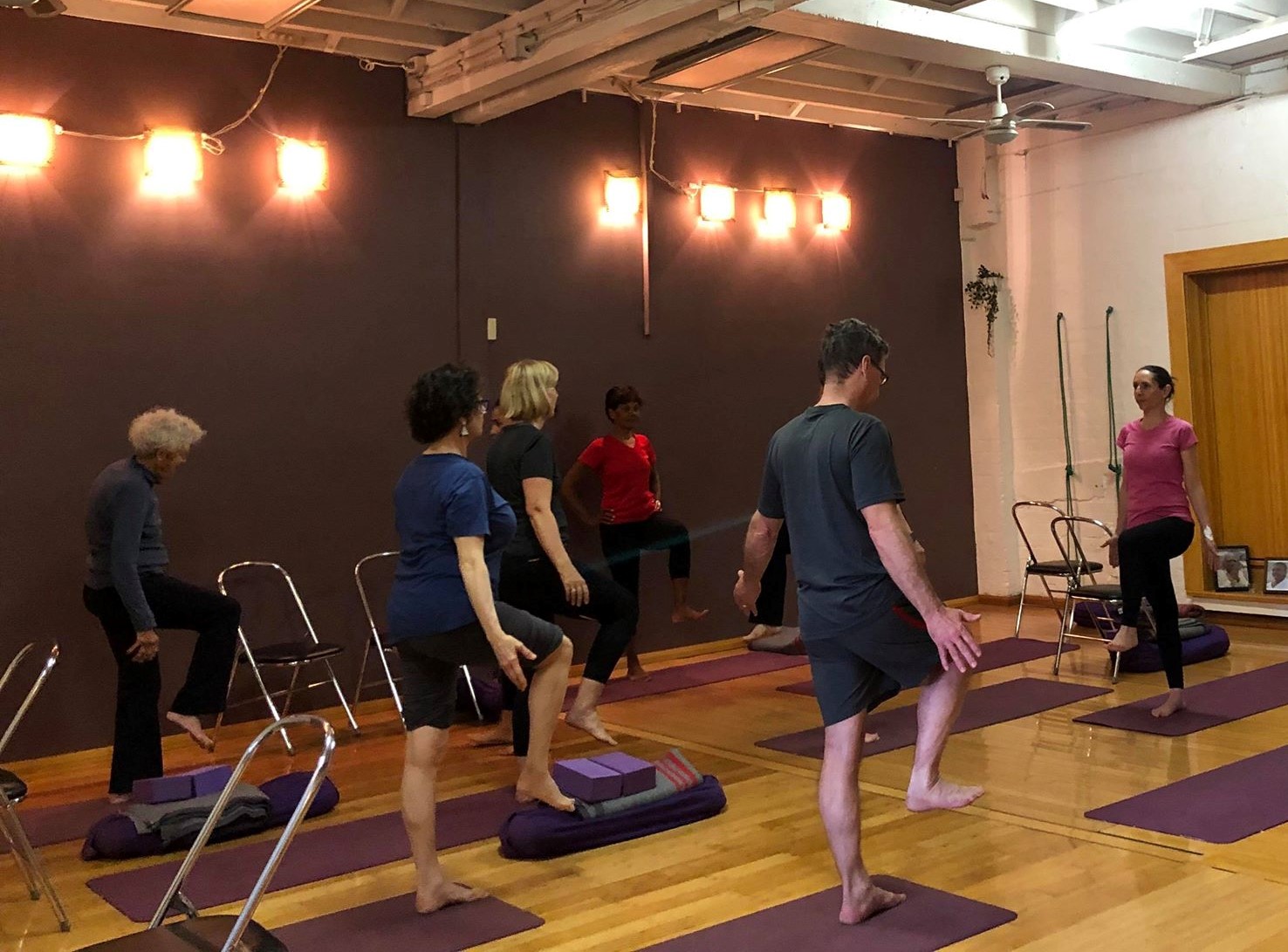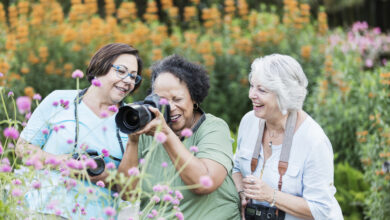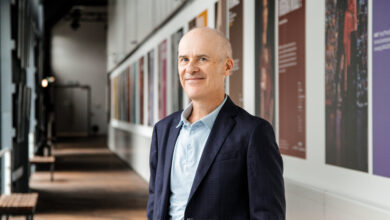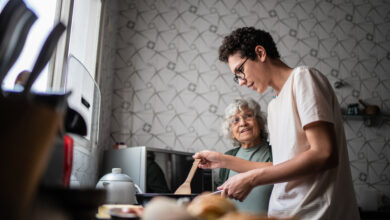Is yoga the trick to kick lockdown lethargy?

As the nation’s largest cities remain under lockdown, staying active has posed a challenge for many older Australians.
When 70-year-old Belinda Pring signed onto an online yoga trial from her living room, she said within weeks she had gained an unexpected sense of balance to her at-home routine.
“There were things I would do that I wouldn't have thought my body could have done, and that’s a confidence boost,” she told Aged Care Insite.
“The little hello that everyone gave at the beginning was welcoming, and it was great chatting and listening to what others were saying.
“But it was particularly good during COVID-19, it was a bit of a miracle really.”
The classes were part of an ongoing Successful AGEing (SAGE) trial run by the University of Sydney, which aims to study how yoga exercise can help prevent falls in people aged over 60.
For one hour, twice a week, Belinda logged onto Zoom with a trained instructor and learned how to perform various yoga poses designed to improve balance and strengthen leg muscles.
Although she said she was physically healthy throughout her life, Belinda, a retired harpist, said she began to notice a significant improvement in her posture.
“It was like learning a piece of music. To play something well you have to do it in slow motion, and if i can do it really well in slow motion, the body seems to understand exactly what it should be doing.
“When you are older you just have to push yourself a bit harder because there is that natural tendency to stick with what you know.”
Associate Professor Anne Tiedemann, lead researcher at the Institute of Musculoskeletal Health, said the success of the first round of the trial has now boosted recruitment to older people living across regional NSW.
“It's been extremely well received by the people in our studies,” she said.
“And there's really been a huge amount of interest and uptake of that opportunity, which has been really great to see.”
While the effects of COVID-19 on the daily exercise habits of people over 65 are unknown, it is crucial that people remain active while housebound, according to Tiedemann.
“Physical activity is even more important when you're older.
“Because you've got the risk of developing chronic disease, but also just to maintain your function, your strength, your balance, avoid falls and stay independent and living in your own home.”
National guidelines for physical activity for people over 65 recommended at least 30 minutes of moderate exercise per day, including a mix of cardio, strength and flexibility training.
Only 25 per cent of older Australians achieve this level of activity, leading to higher rates of illness and mortality.
“The evidence shows that even if you can't reach that amount of physical activity, doing anything is better than doing nothing,” said Tiedemann.
“So really the message is if people can only do 10 minutes a day, it's worthwhile to do that 10 minutes.”
There are many significant barriers preventing older people from keeping active, including a higher likelihood of joint pain, heart conditions and general physical discomfort.
A lack of confidence and greater perceptions of risk of injury from exercise are also major hurdles, which can be addressed by targeted health consultation, according to Tiedemann.
“There's a need for more education, but also guidance through seeing health professionals who can really give that individual guidance and reassurance.”
“It's not harmful, and for most people there's very few negative side effects, so it really is important to get that message out there that it's the best thing to be doing.”
Second wave
Many experts have drawn attention to the impact of COVID-19 on physical wellbeing, with particular concerns raised towards older people at risk of social isolation.
As the most at-risk group of severe illness from the virus, people aged over 65 experience more restricted movements outside than other age demographics.
Recent studies have also shown a decline in health outcomes due to current restrictions in residential aged care homes limiting visitors and daily activities.
“There's been publications from people describing it as the 'the second wave' of the pandemic, this impact on people's functional ability,” said Tiedemann.
“It's documented that with older people if they're confined to bed for even a couple of days, they lose, I think, around 5 per cent of their muscle mass per day.
“I see it in my own older parents; they're much more inactive now and we know that's likely to lead to things like a greater risk of falling.”
Taking daily walks is not sufficient enough to reduce falls, said Tiedemann, who advises that people incorporate strength and balance training into their weekly routines.
“Often people fall into the trap of getting very enthusiastic and then having a setback: they might get some muscle pain or they might miss a week because it's raining.
“It's just about having realistic goals and being ready to try again when you don't always succeed at achieving those goals.”
The second phase of the SAGE group yoga trial is currently underway, with new classes beginning in early September.
Email: [email protected]





